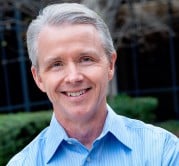CEO – Reinvent thyself

In 2015, The Conference Board, an international economic and management research organization revealed that the “optimal span of a CEO” was 4.8 years. It concluded that, after about five years, CEOs relied more on their internal network rather than information that comes from outside markets. This inward focus caused CEOs to be less attuned to market conditions and their customers. Perhaps, it’s a modern-day version of getting too comfortable in a job.
So, what’s a CEO (or any credit union professional, for that matter) to do to reinvent himself or herself every five years? Many of your peers shared their approaches for reinvention in the C-suite. The synopsis of their answers? With your Board, build a plan for strategic, professional, and individual development.
Strategic Development. Much of this folds into the execution of your credit union’s strategic plan and is the foremost factor in success as a CEO. Odds are, most CEOs suppose that their strategic plans are overlooking one element that could be a principal stimulus for increased growth, profits, and member loyalty. It involves some entrepreneurial risk, but also delivers entrepreneurial reward. It just may be the incentive a CEO needs put some “start-up” dynamism into building the credit union. One credit union CEO shared (regarding a new venture): “I’m three years from retirement and I’m more excited about building the credit union than I’ve been in my 30-plus years here.”
What’s the entrepreneurial and indispensable element for your strategic plan that needs your Board’s go-ahead and your roll-up-your-sleeves executive ability?
Professional Development. Often, growing as CEO moves past the financial rewards for leading and developing a successful credit union. Many CEOs shared that continuing their education through graduate school or executive development programs was key in revitalizing their skills. Others described how industry leadership (associations and business partners) was valuable with opportunities to associate with other CEOs who were expanding admirable enterprises. Of even more interest, CEOs shared that local business leadership opportunities (Chamber of Commerce, Rotary, Vistage, etc.) allowed CEOs to interact with non-financial services CEOs and hear their perspectives, strategies, and potential partnerships.
What educational and leadership opportunities would help your ability to grow as CEO and appreciate a wide-ranging continuum of perspectives on business?
Individual Development. Life outside of the office was significant to CEOs. In fact, when CEOs shared what they valued in life with their Boards, all Boards asked for ways the CEO could flourish away from the office. The Boards’ explanations were common: a balanced CEO is an effective CEO. The CEOs agreed; balance gave CEOs greater focus, ability to delegate, and determination. Some CEOs embarked on writing endeavors, pick-up hockey leagues, weekly lunches with the kids, fishing tournaments, and more. Their time in the office was more industrious because their Boards were investing in, what one CEO called, “the whole CEO.”
What personal pursuit or ambition adds value to your life, helping you focus and better manage the busy world of being CEO?
The Conference Board report went on to clarify that Boards could increase the optimal span of a CEO with a focus on “certainty” in the position. This “certainty” was somewhat based on financial and strategic results; and, partially based on development of the CEO. In short, Boards continuously asked, “What’s necessary to be our CEO?” and coordinated their answers with what their CEOs needed to deliver results and grow as a leader – in the credit union, within the business community, and away from the office.





